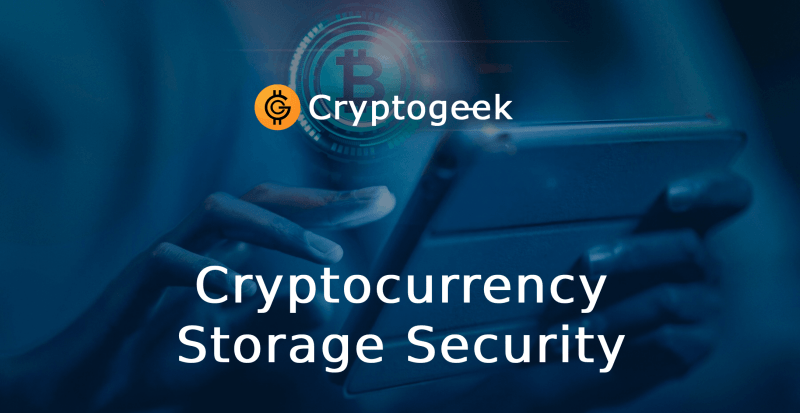Enhancing Security: Key Approaches to Safeguard Your Cryptocurrency Storage


In the dynamic world of digital finance, cryptocurrencies have emerged as a revolutionary medium of exchange, investment, and technological fascination.
With this surge in popularity, however, comes a heightened responsibility for users to safeguard their digital assets.
Unlike traditional banking systems, the security of cryptocurrencies relies heavily on individual practices and knowledge. As such, understanding how to store your cryptocurrencies safely is not just advisable; it's imperative.
Contents
Understanding the Risks
Cryptocurrency storage is fraught with potential risks. The digital nature of these assets makes them susceptible to a variety of online threats, including hacking, phishing, and other forms of cyber-attacks.
The decentralized structure of blockchain technology, while providing numerous benefits, also means that individual users are primarily responsible for the security of their own assets.
This responsibility can be daunting, given that the consequences of security breaches are often severe and irreversible.
Types of Cryptocurrency Wallets
At the heart of cryptocurrency security is the choice of wallet. Hot wallets, which are connected to the internet, offer convenience and quick access to assets, making them suitable for active trading and transactions.
However, their online nature makes them more vulnerable to cyber-attacks. Cold wallets, on the other hand, are offline storage options like hardware wallets or paper wallets.
While they provide a higher level of security against online threats, they require more careful physical management and are less convenient for frequent transactions. The decision between a hot or cold wallet should be based on your individual security needs and how you intend to use your cryptocurrencies.
Best Practices for Security
Securing your cryptocurrency starts with robust password practices and extends to the layers of security you wrap your digital assets in.
Multi-factor authentication (MFA) should be a standard for any cryptocurrency account. Going beyond the basics, adopting kleversafe practices involves an integrated approach to security.
This means not only using strong, unique passwords but also keeping your wallet software updated to patch any vulnerabilities. Additionally, staying informed about the latest security threats and how to avoid them plays a crucial role in keeping your assets safe.
Backup and Recovery Strategies
A critical, yet often overlooked aspect of cryptocurrency security is having a reliable backup and recovery plan. Backing up your wallet keys ensures that you can regain access to your assets in case of device failure, loss, or theft.
It's important to store backups in multiple secure locations. Moreover, understanding the recovery process for your wallet is crucial, as losing access to your keys can mean losing your assets forever.
Staying Informed and Vigilant
The landscape of cryptocurrency security is constantly evolving. Staying informed about the latest trends in security and being aware of the common types of scams and phishing attempts can significantly reduce the risk of losing your assets. Regularly participating in cryptocurrency communities, attending webinars, and following trusted sources for crypto news can help you stay ahead in the security game.
Conclusion
In conclusion, the security of your cryptocurrencies should never be an afterthought. It requires proactive measures, continuous learning, and an understanding that the digital currency world is ever-evolving.
By implementing the strategies discussed, you can significantly enhance the safety of your digital assets and enjoy the benefits of cryptocurrencies with greater peace of mind.

I migliori tutorial
-
Что такое хард-форк?Jul 27, 2020
-
Стейкинг на Ethereum 2.0 и его основные особенностиAug 01, 2020
-
Инновации на основе блокчейна в сфере энергетикиAug 03, 2020






Qui non ci sono ancora commenti. Sarai il primo!